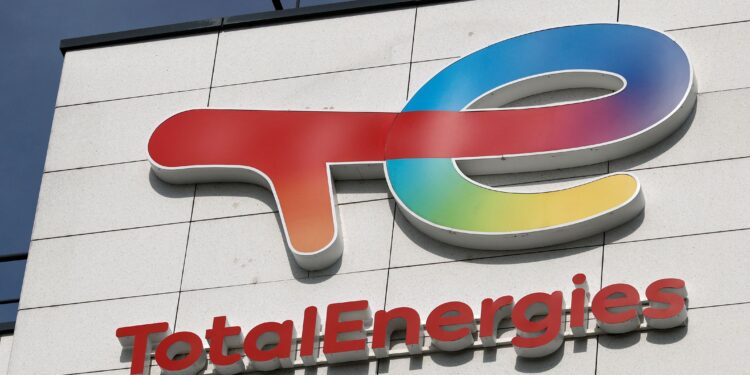Charting a Sustainable Course: TotalEnergies and LR OneOcean’s Partnership
In a remarkable advancement for sustainability in the maritime sector, TotalEnergies has partnered with LR OneOcean to leverage innovative technologies aimed at reducing emissions from vessels. As environmental issues gain urgency, this collaboration represents a crucial step towards achieving greener shipping practices. By incorporating state-of-the-art software and data analytics, TotalEnergies is not only improving operational efficiency but also pledging to lower its carbon emissions across its fleet. This partnership highlights the shifting dynamics of offshore energy and emphasizes the necessity for companies to embrace transformative technologies that align with global climate objectives. In this article, we delve into the specifics of this groundbreaking initiative and its potential impact on future maritime operations.
Sustainable Initiatives in Maritime Operations
TotalEnergies is making significant strides in maritime sustainability by adopting LR OneOcean’s advanced technology within its fleet management systems. This strategic alliance aims to tackle the urgent challenge of vessel emissions, which are major contributors to marine pollution. Through sophisticated data analysis and real-time monitoring capabilities, TotalEnergies intends to optimize fuel usage while enhancing operational performance. By utilizing advanced algorithms, shipping routes can be dynamically adjusted to minimize unnecessary emissions while ensuring timely cargo delivery.
The technology employed also emphasizes collaborative decision-making, engaging various stakeholders within the maritime industry. By sharing insights and data effectively, TotalEnergies promotes a more cohesive approach toward sustainability that can drive widespread industry changes. Key components of this initiative include:
- Emission Monitoring: Ongoing tracking of emissions providing immediate feedback.
- Route Optimization: Intelligent planning aimed at decreasing fuel consumption and time spent at sea.
- Data Collaboration: Tools designed for partners to engage actively in sustainability initiatives.
This forward-thinking strategy not only demonstrates TotalEnergies’ dedication to minimizing its environmental impact but also sets an example for other players in the maritime field. The fusion of technology with traditional shipping methods is paving the way toward a sustainable future where operational efficiency aligns seamlessly with ecological responsibility.
Boosting Efficiency through LR OneOcean’s Solutions
The current push towards environmentally friendly operations within maritime transport is no longer just an option; it has become essential. TotalEnergies is making substantial efforts to ensure that its fleet operates with minimal environmental repercussions through integrating LR OneOcean’s technological solutions—a significant advancement on this journey. Utilizing cutting-edge data analytics alongside real-time monitoring allows vessels to refine their routes and speeds effectively, leading directly to reduced fuel consumption and lower emissions levels.
The benefits derived from implementing LR OneOcean’s solutions are extensive:
- Sophisticated Route Planning: Employing advanced algorithms for optimal course navigation.
- Status Emission Tracking: Continuous emission oversight yielding actionable insights.
- Predictive Maintenance Strategies: Reducing downtime by anticipating equipment failures before they arise.
- An Analytical Approach: Leveraging big data analytics for improved onboard efficiency decisions.
The adoption of such innovative technologies enables TotalEnergies not only compliance with regulatory standards but also establishes itself as a leader in environmental stewardship within the industry landscape. The collaboration between these two entities exemplifies how modern solutions can harmonize operational needs while fostering greater sustainability across maritime activities.
Strategies for Implementing Emission Reduction Technologies
Additionally fostering an organizational culture centered around continuous improvement encourages personnel engagement regarding new practices aimed at reducing emissions.
Essential steps may include:
- User Training Programs: Equipping crew members and operational staff through training sessions focused on new technologies ensures effective system utilization.
Equally important remains establishing robust regulatory frameworks guiding efforts directed towards lowering overall greenhouse gas outputs . Each voyage presents distinct challenges necessitating customized approaches . Formulating partnerships alongside research institutions aids development surrounding innovative strategies targeting reductions . A collaborative methodology could encompass :
| Data Analytics | Employs real-time information optimizing fuel use identifying hotspots contributing higher levels pollutants . |
| Alternative Fuels | Investigating options including LNG biofuels significantly curtail overall output harmful gases . |
Looking Ahead Towards Sustainability
Total Energies ‘ commitment integrating LROneOceans pioneering technology signifies considerable progress advancing sustainable practices throughout marine industries . Harnessed digital tools monitor reduce shipboard discharges , taking accountability regarding ecological footprints whilst setting benchmarks others aspire achieve too . As global priorities shift increasingly favor eco-friendly initiatives , partnerships like these illustrate proactive measures firms undertake aligning themselves international targets concerning greenhouse gas reductions . Navigating cleaner horizons requires ongoing endeavors ; however collaborations such as these illuminate pathways leading greener efficient seas encouraging further innovations transforming sectors long term viability .
Total Energies ‘ commitment integrating LROneOceans pioneering technology signifies considerable progress advancing sustainable practices throughout marine industries . Harnessed digital tools monitor reduce shipboard discharges , taking accountability regarding ecological footprints whilst setting benchmarks others aspire achieve too . As global priorities shift increasingly favor eco-friendly initiatives , partnerships like these illustrate proactive measures firms undertake aligning themselves international targets concerning greenhouse gas reductions . Navigating cleaner horizons requires ongoing endeavors ; however collaborations such as these illuminate pathways leading greener efficient seas encouraging further innovations transforming sectors long term viability .










